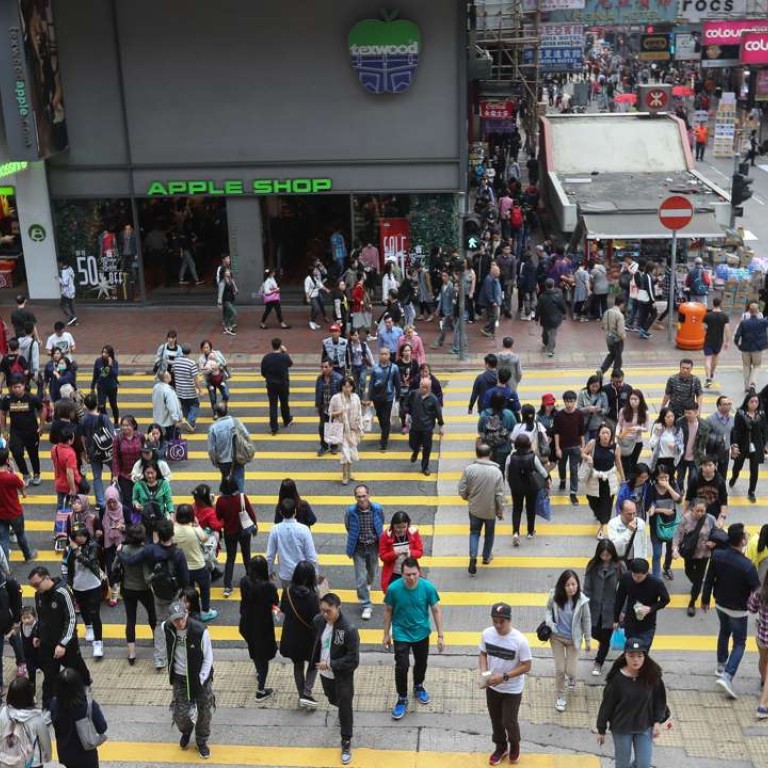
Letters to the Editor, April 2, 2017
Women still have to fight a lot of prejudice
We have seen positive changes in attitude in the 21st century, compared to the past when many men saw female colleagues as inferior. More women now hold senior posts in governments and businesses.
However, even though we see more women in the workplace, there are still barriers, with gender inequalities and stereotypes persisting.
Many women in their chosen careers still face income disparity, job stratification and lower social mobility.
These problems have to be solved, given that Hong Kong’s ageing population will lead to a shrinking workforce.
Eradicating gender discrimination requires efforts on the part of the government, enterprises and citizens. Traditional values in Hong Kong can still act as an obstacle to progress. Also, sexist attitudes in the media and advertising industry discourage women from assuming non-traditional responsibilities.
The media can help to change the stereotypes. Granted, mindsets don’t change overnight; however, we should not be complacent about achieving gender parity.
The government and citizens should work to rectify the present situation.
Wong Hoi-lam, Yau Yat Chuen
Only rich gain as flat prices hit ridiculous level
Property prices in Hong Kong are now so high that the present situation is unacceptable.
Even young people who have graduated from university and have a good career can’t afford the down payment needed to get a mortgage for a small flat. Most of them are forced to rent or, if they cannot afford even that, stay with their families.
They buy low, hold on to the property and then sell at a much higher price. You might need as much as HK$4 million just for a 200 sq ft flat.
Because of these housing problems, more citizens are forced to live in subdivided flats. And because of inflation, many struggle to the pay the rents for these tiny units. Many residents would argue that they are experiencing a lowering of their quality of life.
For a teenager who does not come from a rich family, eventually owning flat is an impossible dream. I will rent, as it is cheaper than trying in vain to buy a flat, and spend more money on entertainment and education.
Peter Tam, Po Lam
Competing on a screen is not really sport
E-sports are not real sport. The experience is not like that of an athlete who is involved in a gruelling training regime and can then have a real sense of achievement if they win.
When I think of sport, I think of people outdoors running and doing other forms of exercise.
We also need to think about the health aspect. Spending longer periods of time looking at a screen while playing e-sports can cause eye strain.
I do not think the government should fund the development of e-sports.
Vivian Lau Siu-yee, Sheung Shui
Online abuse victims must sound alarm
Cyberbullying is a factor when you look at reasons for students committing suicide.
One way to deal with cyberbullying is for parents to keep the lines of communication open with their children, so they can see if there is a problem.
Schools must hold talks to explain to students the potential risks when using the internet and how to avoid them. Also, students have to be told that if they are victims of online bullying they should talk straight away to someone they trust.
Yuki Wong, Tseung Kwan O
City struggling with e-waste needs solutions
It is difficult for Hong Kong to develop a sizeable sector to deal with all the electronic waste it generates.
One problem is the lack of land; secondly, our city does not have enough home-grown professionals with the specialist knowledge required to run an e-waste plant safely and effectively.
For these reasons, there is not enough recycling of the large volumes of e-waste in Hong Kong – we are generating at least 70,000 tonnes a year.
It is therefore not feasible for all the e-waste that is generated here to be processed and recycled in the city.
We do not even have enough land for the housing we need, never mind a network of e-waste plants.
We hear so many complaints from people about the long waiting lists for a public housing flat, and they are getting longer.
I believe there must be developed nations with sufficient room and the right expertise that would be willing to take some of our e-waste so that it could be recycled there.
I know it would take time, but after negotiations, surely we could come to an agreement with these countries and sign the relevant commercial contracts and make sure all the expert personnel and safety regulations are in place.
Lam Yan-wing, Yau Yat Chuen

